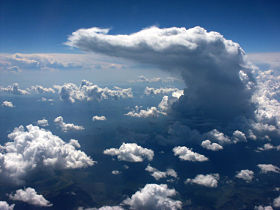52. Under Construction: Dignāga on Perception and Language
The great Buddhist thinker Dignāga argues that general concepts and language are mere constructions superimposed on perception.
Themes:
• D. Duckworth et al., Dignāga’s Investigation of the Percept, ed. and trans. (New York: Oxford University Press, 2016).
• M. Hattori, Dignāga On Perception: Being the Pratyakṣapariccheda of Dignāga’s Pramāṇasamuccaya from the Sanskrit fragments and the Tibetan versions (Cambridge MA: 1968).
• F. Tola and C. Dragonetti, “Dignāga’s Ālambanaparīkṣā,” Journal of Indian Philosophy 10 (1982), 105-34.
• D. Arnold, “Candrakīrti on Dignāga on Svalakṣaṇas,” Journal of the International Association of Buddhist Studies 26 (2003), 139-74.
• H. Masaaki, “Apoha and Pratibhā,” in M. Nagatomi et al. (eds) Sanskrit and Indian Studies: Essays in Honour of Daniel H. H. Ingalls (Dordrecht: 1980), 61-74.
• S. Katsura, “The Apoha theory of Dignāga,” International Journal of Buddhist Studies 2 (1979), 493-89.
• S. Katsura, “Dignāga and Dharmakīrti on Apoha,” in E. Steinkellner (ed.), Studies in the Buddhist Epistemological Tradition (Vienna: 1991), 129-46.
• R.K. Payne, “The Theory of Meaning in Buddhist Logicians: the Historical and Intellectual Context of Apoha,” Journal of Indian Philosophy 15 (1987), 261-84.
• D. Sharma, “Buddhist Theory of Meaning (Apoha) and Negative Statements,” Philosophy East and West 18 (1968), 3-10.







Comments
Some Difficulties (aporia) with Apoha
1) If the objects of perception are inexpressible or ineffable, which I take to mean that nothing can be thought or said about them, then how can it be said of any particular, among many other characteristics, that “it is a particular, indefinable, and momentary object of experience within our mental life”? (10:20)
2) If what is true of all pots is that they are not non-pots, then is not 'not non-pots' a universal used in reasoning? I suppose so. But if both pots and non-pots are not real but only fictional constructions, then what's the point of kicking them around, if one is interested in non-fictional reality?
3) If particulars, as such, are momentary objects of experiences within our mental life, then, if one is not an idealist, what existed at times prior to or even now independently of perceivers or conceivers?
4) a ) If Exclusion and Inclusion, particularly the former, are principles of the theory of Apoha and are used in the explanation of the theory, then they are clearly concepts and not particulars. They are constructs or fantasies of the human mind.
And b) If they are not particulars then they are not known directly by perception but known by inference.
But c) If all inference or reasoning involves these principles, then, as a puzzling conclusion, how, without circularity, can we understand that “such movements [exclusion and inclusion] are the work of inference and reason”? (22:30)
If not answered here, perhaps “next time”, but not in a cloud of confusion.
In reply to Some Difficulties (aporia) with Apoha by Otter Bob
Apoha
Those are some good questions! The answers may become somewhat more clear as we go on since we will have several more episodes on Dignāga, but I think that part of the answer is that you are holding on too much to the contrast between "real things" that are external to the mind, and "figments of the imagination" which would be the level of concepts in Dignāga. Actually Dignāga seems to have little to say about "real things" and what their metaphysical status is: they come up only as the supposed "foundation" of perception, which he rejects as a source for perceptions. It is only his follower Dharmakīrti who takes the explicitly idealist step of rejecting their reality. If I understand Dignāga correctly, he is arguing that perception and thought is entirely a mental phenomenon and so he is trying to analyze it. Whenever you have general concepts you are operating at the level of inference or reasoning (so the answer to your first question is that a general characterization of perception is at this conceptual level, as is calling the individual perceptions "perceptions" in the first place). I don't think that the fact of being conceptual or inferential means that it is "fictive" or "unreal"; to the contrary it is part of the mental reality we are constructing all the time which is the only reality there is, at least for us. (Of course I am using the words "we" and "us" loosely here: it's Buddhism.) So Dignāga might be unhappy with your slip from "constructs of the human mind" to speaking of "figments" or "fantasies" as you do in your point 4, since "figments" suggest there is some alternate, more real reality to which we may or may not have access. Instead, he says that we have guaranteed knowledge through perception, and conceptual inferences are based on the perceptions. So, the mental is just the target of knowledge, or we might say it (and not external reality) is the sole arena in which knowledge occurs. Does that help?
In reply to Apoha by Peter Adamson
Apoha Revisited
Thank you for the clarifications, Peter. I suppose I used such terms for concepts as “fictional constructions” and “constructs or fantasies of the human mind” because they are found in the podcast. The second sentence in 4a was added in editing my comments for additional emphasis. That was a mistake. Strike it. It's not necessary for stating my puzzlement there. Throughout the podcast I kept saying to myself, “Fantasies as opposed to what?” To use the fancy terms, he is, as you say, doing phenomenology, describing and analyzing our mental life. He is setting aside the realist/idealist debate, as opposed to the idealist pupil, Dharmakīrti. I certainly agree that Dignāga would never say that concepts are “unreal”, since perceptions and concepts are all we've got. I understand that he is non-committal about (brackets) the reality of an external world. That's why I think he would leave aside the question in 3. But you did say, “Like the nominalists...he thinks universals are mere concepts and that *everything real* is a singular or individual item. (9:12, my emphasis) Shall we say for him that, in regard to our mental life (all that we have), perceptions and reasoning with concepts are both real but in different ways? Concepts as universals have no existence independent from the mind, whereas the objects of perception, individuals, do have an external existence, although they are inexpressible. But we can't say that if it asserts that individuals have a non-mental existence. Would it be better to say that individuals are mental but you can't say anything about them because that is a distorting conceptual inference?
But now I may be confusing myself. If he is dealing solely with our mental life, then, when he speaks of individuals, is he speaking of the objects of perception or the perceptions themselves? Perhaps my confusion is between his first account of perception and his “more elaborate and somewhat different account of perception” (8:05) You end your description of the former with “...what we take to be ordinary objects of perception are really only products of the human mind. In fact, we perceive what he calls knowable internal forms. These internal forms both cause our experience and provide it with content, something nothing outside us can do.” (7:47) That certainly explains why he rejects non-mental, external things as a source of perception, although you do say, 'they come up only as the supposed “foundation” of perception.' Why the scare quotes on 'foundation' and what are you meaning there? If what we perceive are internal forms, then what is the difference between them and individuals? Or does he just leave these knowable internal forms behind when he moves to the more elaborate account of perception?
I'm going on, as is my wont, too long here and just confusing things even more. Perhaps we are also getting too deep now. I'll await the further episodes.
Add new comment